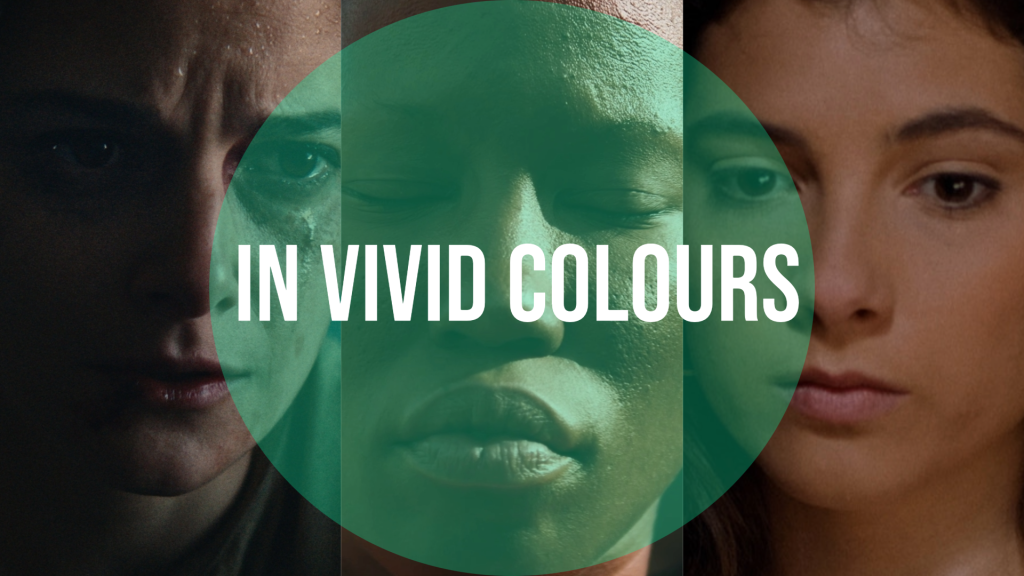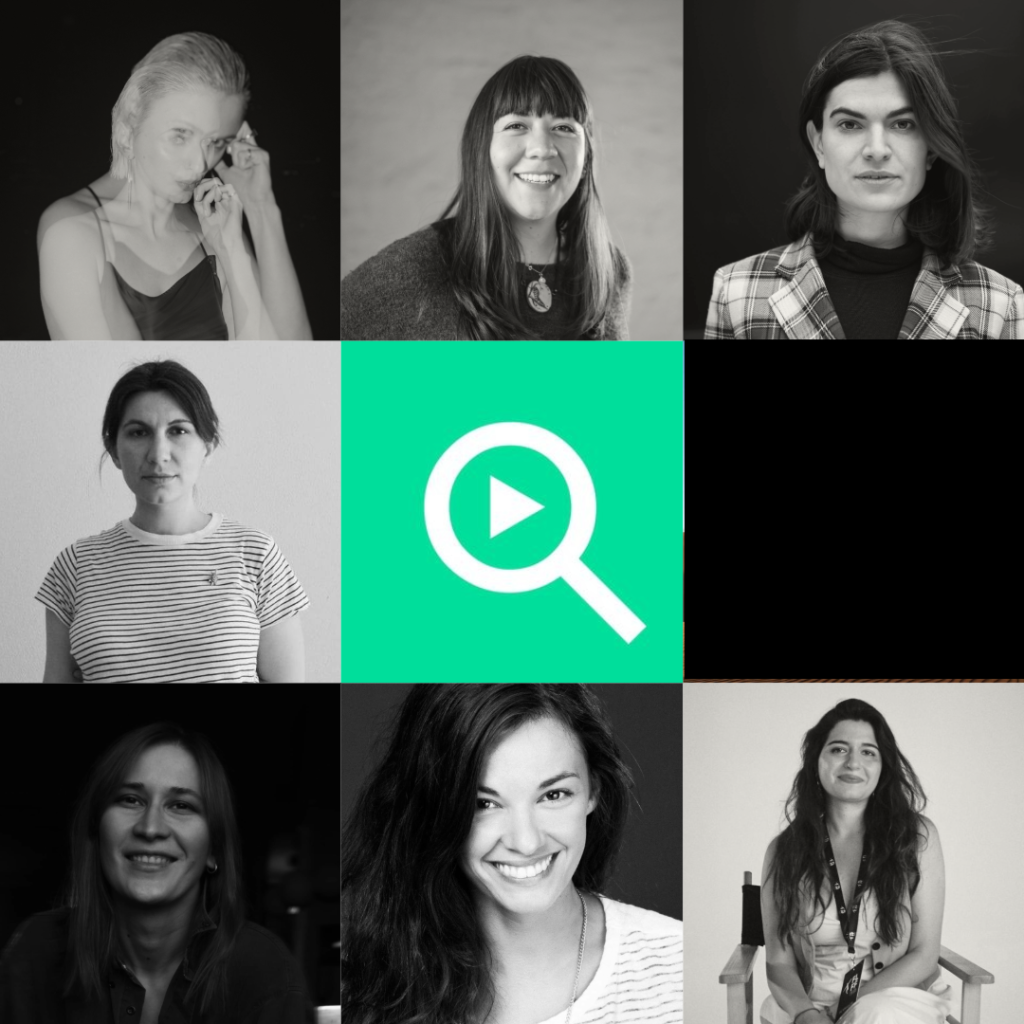 By Jess Sweetman – T-Port Marketing
By Jess Sweetman – T-Port Marketing
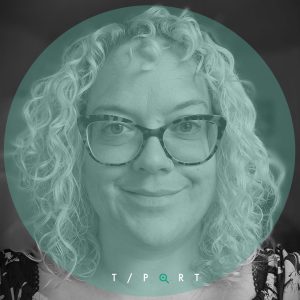
March 8th is International Women’s Day (IWD), a global holiday celebrated annually to commemorate women’s cultural, political, and social achievements. It is also a focal point in the women’s rights movement, bringing attention to issues such as gender equality, reproductive rights, and violence and abuse against women.
The film industry has long been criticised for its lack of gender diversity in both the people who helm the creation of its films and whose stories are being told. Although strides can be seen to have been taken, from the upheaval of the “Me Too” movement through to the success of films such as Barbie, is it enough?
Recent reports say no. Pointing to continued pay gaps and a lack of women directors out working in the industry, despite films helmed by women breaking box office records and winning big at festivals.
As an online short film market T-Port is lucky for a number of reasons – firstly we are available for filmmakers worldwide to add their work to, which means that we are able to engage with filmmakers from all over the globe. Secondly we work with short filmmakers, and have near complete gender parity in our catalogue. Thirdly, our filmmakers are open to sharing their points of view as the next generation of rising filmmakers.
With this in mind, I reached out to a selection of female directors whose films appear on T-Port, (you can watch their shorts for free all month on our website) and I took a moment to ask them about how they see the film industry at the moment. Have they noticed any changes? Do they struggle to see themselves in the industry? And do they think there’s merit in them only sharing the stories or women?
What do the views of seven female filmmakers mean? You might ask – well to me these women represent the future of film. These are filmmakers who will become the next generation, who will be shaping the industry from within, and will be bringing their stories to light to tell. We should listen to them now, because soon they will be the future.
Smaragda Nitsopoulou – director of I’VE ALWAYS WANTED TO SEE A MARTIAN
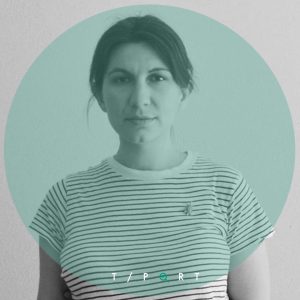 From: Greece
From: Greece
How have you experienced the film industry from a female perspective – what are in your personal experience ongoing issues, or potential improvements?
I recently wrapped production in my latest short film which was an all-female cast and crew. In itself, it was a goal of mine to manage to get a team of female film professionals from development to promotion. For a small country such as Greece, it may be a challenge to find that many women in the industry and that says a lot. But the experience was profound for all of us and we can see the impact it had in the film. I believe that most issues start from available funding and unconscious biases in that process. The female point of view remains uncharted for most readers and programmers who continue to be mostly male and end up gatekeeping opportunities.
Women are still paid less than their male peers and are often ostracised when they need to take maternity leave. But the more vocal we become about the unfair conditions in the industry and our daily lives, we will stand stronger, and more women will join this incredible line of work.
Where do you think the film industry is at in terms of equal representation across the gender spectrum in a. production and b. Representation?
We are moving in the right direction but we are still far from equal representation. Even in terms of numbers, women represent less than 25% of the industry. And in smaller markets that number falls into single digits. I don’t believe that that space is going to be given to us, rather it needs to be demanded and conquered. Our challenge is collective perseverance in a system that is hard at its core.
Is it particularly important to you to tell women’s stories – if so, why? If not, why?
Personally, I don’t recognize female characteristics in my films or the female protagonists. That is not my starting point but I understand that many viewers may attribute specific artistic choices to my gender or the character’s gender. That is a knowledge that I take into account when I’m writing a script but it doesn’t define my process. The struggles and joys of women’s stories can be experienced by men. That is important to instill in viewers by exposing them to those stories. I focus on the universal commonalities of the human experience that exist above gender preconceptions, class and ethnicity.
Tea Vatsadze Director of 45
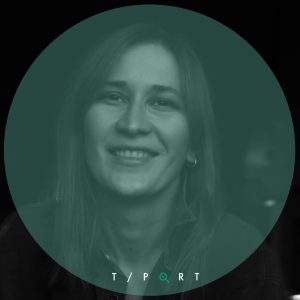 From: Georgia
From: Georgia
How have you experienced the film industry from a female perspective – what are in your personal experience ongoing issues, or potential improvements?
In my country Georgia, you could say women are dominating the field. Be it political activism related to film or production itself. But occasionally I do get extra pressure. As if man try to guilt trip me if I don’t know technical details here and there. However mostly there has been no problem accept for financial or personal.
Where do you think the film industry is at in terms of equal representation across the gender spectrum in a. production and b. Representation?
As for the film industry globally, I think we are slowly getting there, although for now it looks a bit forced. By all means. I hope someday we will be accepted naturally as female filmmakers and will not need platforms especially arranged for women to get out and about.
Is it particularly important to you to tell women’s stories – if so, why? If not, why?
I wouldn’t say that for me stories about women characters are crucial, but I naturally tend to swing that way, as it is more personal and vivid that way. My short film isn’t a very good representation of it though.
Maria Mørkrid director of JONTE
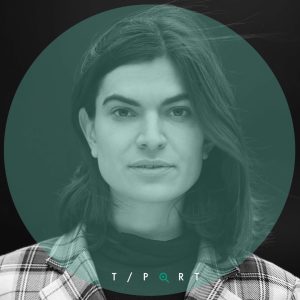 From: Germany / Norway
From: Germany / Norway
How have you experienced the film industry from a female perspective – what are in your personal experience ongoing issues, or potential improvements?
I think as a woman and a mother, I have now seen these issues from a different perspective. Being a mother in this industry is not easy, and especially in terms of production and working on set. I would love to see an improvement on work-life balance and making a film set more “family friendly”. Whether that is organising child care for the mothers on set, rooms for breastfeeding and pumping or simply finally putting an end to these inhumane long working hours! I think working in film should not be seen as an exception to the rule. It is a job just like any other, and I would love to be able to return to my family in time for dinner and not after a 11 hour workday.
Where do you think the film industry is at in terms of equal representation across the gender spectrum in a. production and b. Representation?
I think that it is easy to believe that we have come a long way just because we see more female representation (to the point that diversity has become a trend to follow) and because we see more and more women as heads of departments in a film set, BUT one must not forget that the problem still is very visible and that it becomes a problem down the line.
Currently, we see a nearly equal part of women who get to direct their shorts and debut feature films and that is amazing, but the statistics are clearly not in our favour when it comes to the third feature film and beyond. The question is why and what can we do about it? I think that it is a societal problem which goes beyond filmmaking, because women have a lot of things to juggle in life and it is hard to “have it all”, but by creating a more family friendly or rather ‘mama-friendly’ working environment, we can come a long way. And maybe at some point, we will finally see productions led by women to receive the same amount of funding as men, and to get to work with larger budgets.
Is it particularly important to you to tell women’s stories – if so, why? If not, why?
Of course, as a woman I do want to tell stories about women, because this is what I can relate to the most. However, what I like the most, is to tell stories about the underdog, the outsider, the underrepresented. Whether that is a woman, a man or somebody who does not identify as either. My last short film, ‘Jonte’, is about the friendship of two men, and how they struggle to express how they feel.
I think there are still many stories untold and that it should not merely be about gender. I believe that telling stories about men who do not fit in with society’s expectations, in the end will serve the cause that all women fight for.
Ferri Caicedo director of WIND WHISPERER
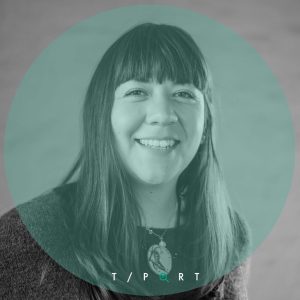 T-Port Partner: AG Kurzfilm
T-Port Partner: AG Kurzfilm
From: Ecuador
How have you experienced the film industry from a female perspective – what are in your personal experience ongoing issues, or potential improvements?
I have been fortunate to find several support groups and networks with a female point of view related to the film industry and I feel that this has helped me to go through the experience of directing independent films with much more confidence than I expected when I started this path. I feel that in general the female gaze needs to be more heard and shared.
Making independent films in itself is an impossible mission from the beginning, but achieving it as a woman is an act of resistance.
Where do you think the film industry is at in terms of equal representation across the gender spectrum in a. production and b. Representation?
I believe there is still a long way to go, and I am not only referring to the physical spaces in the labour spectrum, but also to the cultural dimension. The cultural dimension that we confront with our voice, our ideas and our presence.
Is it particularly important to you to tell women’s stories – if so, why? If not, why?
For me it is important to tell stories that have a personal content and that transit from the personal to the collective. Being a woman, my experiences have a feminine nature but I like to focus on personal events without consciously directing them towards the feminine or towards another gender in particular.
One of the magics of cinema is that it reminds us that we all share similar stories and our lives are articulated through the threads that weave society, so in that way we can play at experiencing life from the depths of the other.
Mimi Vlaovic – Director of YOUR GUARDIAN
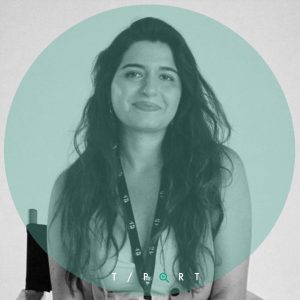 T-Port Partner: Festival Formula
T-Port Partner: Festival Formula
From: Serbia
How have you experienced the film industry from a female perspective – what are in your personal experience ongoing issues, or potential improvements?
I found that I have a bit of a gentler and more nurturing approach to directing than people (particularly in Serbia) are used to. I like to talk to my team members and actors one on one, and not publically announce my notes. This led to some dissatisfaction of male crew members who expected me to be more aggressive and authoritative.
This experience made me realise that some crew members are willing to accept a female director as long as she sticks to a traditionally masculine approach, and it took me some time to accept that I do not know or want to play that part for them. I do think that this is changing and people are getting more flexible in their film processes, particularly within the younger generations.
Where do you think the film industry is at in terms of equal representation across the gender spectrum in a. production and b. Representation?
As relating to where I live – in Belgrade / London: I have two answers to this question. In the Western culture, there seems to be a huge global improvement in both, and my God what a lovely year for female-focused films! I am such a fan of both box office hits that fit this description – BARBIE and POOR THINGS and I am rooting for them at this year’s Oscars.
However, from a Serbian standpoint, it is still quite rare to see a well-written female character. The male gaze is not something that’s been talked about in Serbian mainstream media, and I feel that because of this there are still many- not only male but also female writers – who aren’t aware of their inner male gaze and patriarchal attitudes yet.
This is why I am starting my own small festival Female Characters in Front and Behind the Cameras in Belgrade, in May this year. My favourite part of this will be the writing and acting workshops where participants will draw female stereotypical characters out of a hat and learn how to reverse and subvert them.
Is it particularly important to you to tell women’s stories – if so, why? If not, why?
It really is. I draw so much strength from watching and identifying with my favourite female heroines (Bridget Jones being my childhood favourite), and I can only wish for the characters I write to do the same for their audiences in the future. I vouched to be on the light side of the filmmaking force and give hopeful endings to the women I write, precisely to inspire whoever might identify with them. I find it particularly important to write authentic, powerful, hopeful characters for children because they will shape the future of this world one day.
Zornitza Dimitrova – Director of A DARK MOMENT OF FAITH
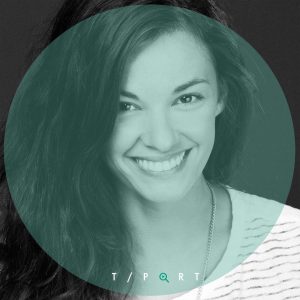
T.Port Partner: Filmakademie BW
From: Bulgaria
How have you experienced the film industry from a female perspective – what are in your personal experience ongoing issues, or potential improvements?
Generally, I think women still don’t get nearly as many chances as men do in our industry. This needs to change. Whether it’s a man-dominated director’s roster or festival eligibility rules which are strict for women and flexible for men – I have experienced both.
Where do you think the film industry is at in terms of equal representation across the gender spectrum in a. production and b. Representation?
Equal representation in production has gone a long way, as far as I know, which is unfortunately not the case with female director’s representation.
Is it particularly important to you to tell women’s stories – if so, why? If not, why?
No, I don’t necessarily prefer to tell only women’s stories. All stories are fascinating to me and I don’t want to reduce myself to a certain kind of stories. What I would like though, is an equal chance to be able to tell my stories.
Veve Kiselev director of THE LIFE NOT LIVED (Only Available for Professional Subscribers to watch)
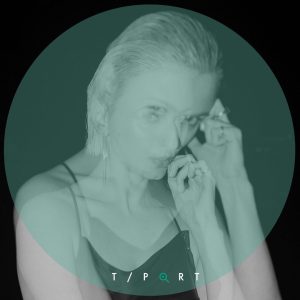
Photo taken by Weiyang Ripper
T-Port Partner: HfMA
From: Germany
How have you experienced the film industry from a female perspective – what are in your personal experience ongoing issues, or potential improvements?
I see that we find ourselves in moving times. More and more, we see at the very end of the movies in the credits, actresses and actors who took part in production of the films. That makes me very happy. To see that performer take their power and be self-conscious about it. Especially women, after decades of being the object in films. We are no longer powerless performers, dependent on the mercy of directors. We make the movies, we conduct the negotiations, we communicate and mediate, and we are very proud of it.
Issues I see definitely in the accessibility of the film industry and terms of employment. Job engagements form through the network. If you worked for production A, you will be booked for production B. But how do you get in in production A? – again through the network: Film Schools, internships or recommendations, that sounds like a vicious cycle to me.
Also the terms of employment have nothing to do with financial stability or safety. If you are hired for a production, it is on a freelance basis for as long as the shoot takes place. Maybe two, maybe three or four months. The time in between productions you are waiting and rely on ‘Arbeitslosengeld’ – unemployment compensation. That for sure has to change to make the industry more accessible and compatible with building future plans. And let’s not talk about working hours during the production …
Where do you think the film industry is at in terms of equal representation across the gender spectrum in a. production and b. Representation?
I got to know more female filmmakers than male ones so far in my early career and that is a statement I think! Producers, directors, managers of film sponsorships, representatives of film clubs, film professors.. they are all female.
Maybe I just got very lucky making those experiences in Hessen, Germany. I have not made personal experiences internationally yet but for sure, to see more and more women working in film is the right development.
Is it particularly important to you to tell women’s stories – if so, why? If not, why?
For me it is not important to tell women’s stories in particularly. In my work it is more fundamental bringing the deepest disrupted emotions to the surface nevertheless if the protagonist is male, female or gender neutral. I do enjoy powerful females leading films though, as a woman, it makes me feel a sense of justice.
If you are a film industry professional and would like access to the catalogue and more, find out here how to sign up.
Filmmaker? Upload your short film to T-Port or sign up for our newsletter to get regular updates on the current trends and exciting innovations in the short film universe.

